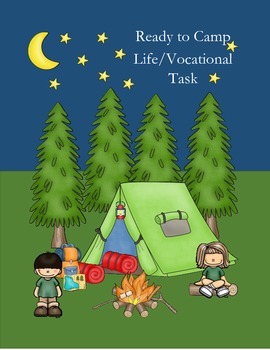One of the issues in some of today's classrooms is the use of standardized teaching which basically teaches all students in a particular grade at the same grade level when in reality there can be up to a 6 grade difference within the class. It is important to embrace these differences and design instruction to meet the multiple learning levels in a way to help each student progress to the next level. This is no easy task! It takes a lot of planning and collaboration with team teachers and paraprofessionals.
I work in a multi-learning classroom and we structure our teaching in a way that embraces the differences in each of our students. As a para I work closely with the teacher to help meet each of the students needs. We teach the basic core subjects that include English, math, social studies, and science. Along with this we also teach life skills and pre-vocational skills.
During our core subject blocks we begin with an introduction to a themed unit and during that time allow for some group discussion about their personal experiences. For example we had a unit in science about outdoor life. This unit included nature and outdoor living. We opened up each science block with a topic story that involved comprehension questions to answer. Because of the different learning levels we answer the questions together as a group.
After the opening introduction to the topic. We allow time for students to share experiences that relate to the topic. This helps the students to be engaged in their learning and shows how the topic relates to real life experiences.
To finish our block we provide individualized time for each student to engage in a task about the topic that helps them to learn more about it. With our higher functioning students this may be working in pairs to research via internet or possible scavenger hunt questions related to the topic, and our lower functioning that may need to work on writing or visual skills can work on individual tasks that relate to the topic such as putting sentence strips in order from the story via cut-and-paste or work box tasks that relate to the topic itself.
The most important thing is to make sure you are meeting each students individual needs and helping them to progress to the next level of learning. Like I said, this is no easy task and takes lots of planning but the end reward is great when the students are engaged and showing progress!
To see one of our classroom tasks that some of our students use that relates to outdoor living, go to my Task Tips page and check out the Ready to Camp Life/Vocational Task This is a task that is adaptable to various learning levels and skills.

